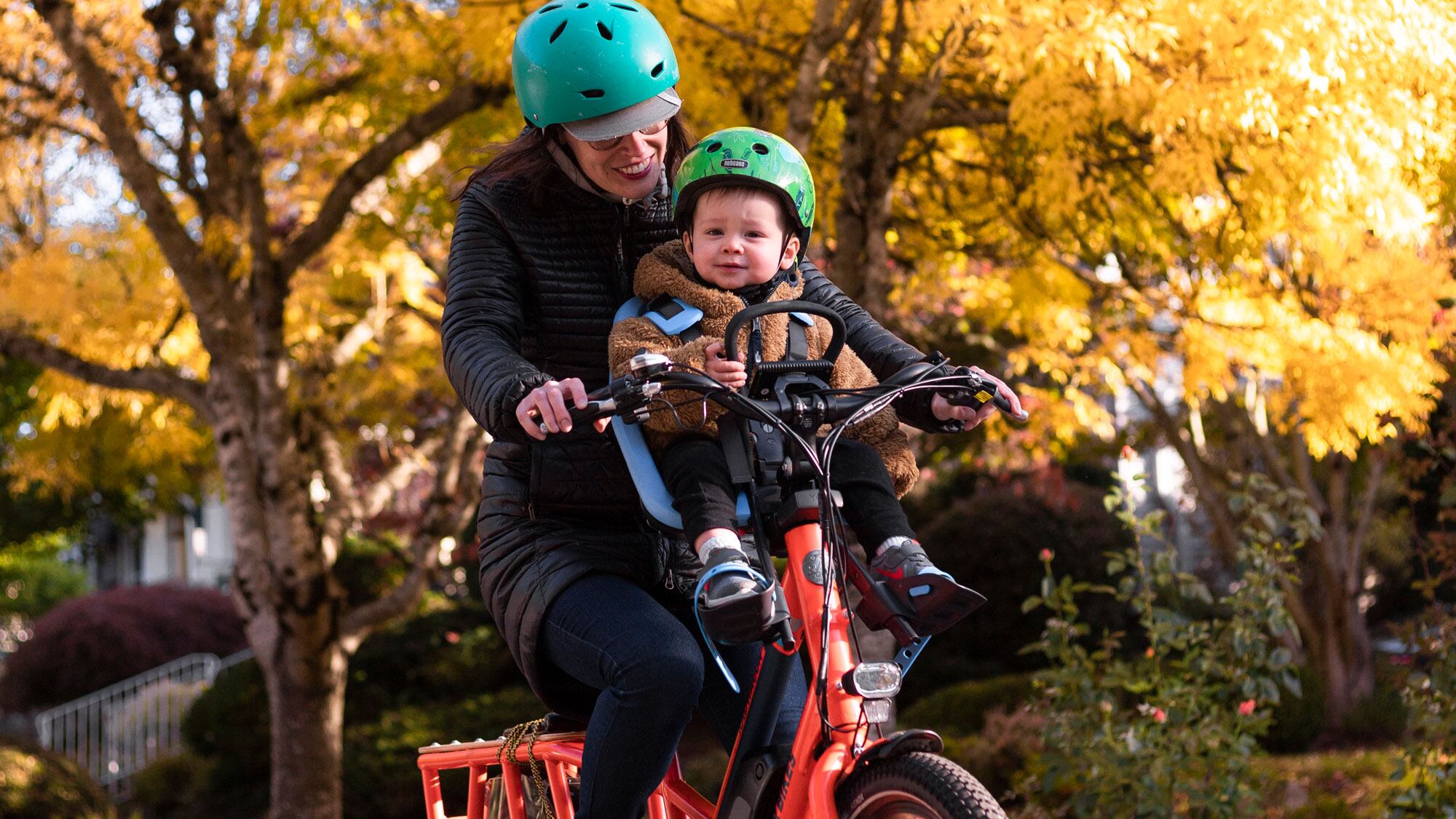Today, there are no negotiations to get into the car. No maneuvering a wiggly child into an uncomfortable car safety seat. No waiting in the pickup line at school or day care.
This brisk fall afternoon, there is a calm, happy toddler bundled up like a teddy bear in his furry brown coat—and strapped in a seat mounted between the handlebars of the family's electric cargo bike.
In some circles of Portland—especially in car-skeptical wings of the Portland Bureau of Transportation—the electric cargo bike has replaced the common family commuter vehicle. It is the new minivan.
"I see it more as quality time with my kid versus schlepping my kid all over town," says Liz Rickles, 32, a project manager for PBOT. "We just have so much more fun together when we're riding the bike than when I'm driving."
As elsewhere, more men than women ride bikes in Portland. One hope for the e-bike is that it will attract more women, particularly moms.
"For women particularly, one of the bigger barriers [to cycling] was not being able to take their kid, or buy their groceries," says John MacArthur, a transportation researcher at Portland State University. "For better or worse in society, women still take a lot of that responsibility or feel that as a barrier to why they can't cycle."
Rickles commutes 3 to 4 miles every day from Northeast Portland to downtown on her RadWagon electric cargo bike. She and her husband still have one car, a Subaru Forester, they use to drop off their 1-year-old son, Julian, in the mornings. Rickles uses the e-bike in the afternoons to pick up Julian from day care and on the weekends for family outings.
"He's happier seeing people on the street, seeing people walking with their dogs, and he's able to interact with them," says Rickles. "And I'm right there with him, experiencing the city."
In the past few years, e-bike businesses throughout Portland have seen increases in families interested in e-bikes as commuter vehicles.
"[Families are] really using the bike more as a tool," says Dean Mullin, co-founder of Clever Cycles on Southeast Hawthorne Boulevard, an electric bike shop that caters to families.
Hannah Schafer, 34, who also works for PBOT as a communications coordinator, uses a rear-mounted seat for her 6-year-old, Eleanor, on their electric cargo bike.
In the mornings, Schafer gets Eleanor situated on the padded seat on the rear rack of the bike, which is surrounded by safety bars and looks like a NASCAR roll cage without its top. Eleanor picks the music for the day from her personal iTunes playlist.
It takes about two "Hakuna Matata"s to get to Eleanor's school, says Schafer.
Schafer lives in Hillsdale and works downtown. She wanted an electric bike to ease the difficulty of biking those hills after work.
"I have to get home, gotta cook dinner, gotta do all the stuff moms gotta do," says Schafer. "I knew I would never do that on a regular bike."
Although it may seem dangerous to have your small child so close to Portland traffic, both Schafer and Rickles say drivers pay attention to the fact they're riding with children.
"People see that it's a mom bike and give me a little more space," says Schafer. "I have never had an experience with my daughter where I have felt unsafe."

We Took Four of the Top-Selling E-Bikes in Portland Out For a Test Ride. Here Are Our Reviews.
Here's a Primer to Help You Navigate the E-Bike Market
E-Bikes Offer a Two-Wheeled Solution For Portland Moms
I Thought an E-Bike Was an Impulse Buy. But It Changed How I Thought About Bike Commuting.
